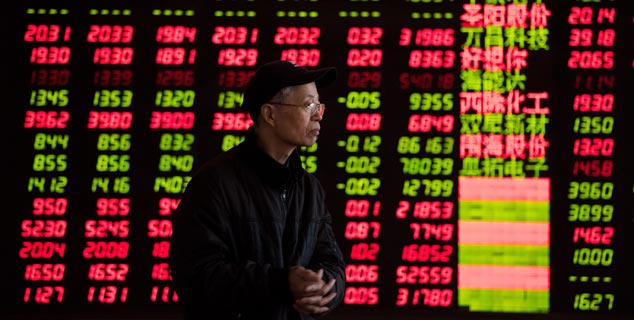
A lot of asset managers might be breathing a bit of a sigh of relief today, as Peter Thal Larsen notes on Reuters.
In a surprise decision, MSCI – the company behind some of the most widely used benchmark indices for emerging markets – has decided against including China’s A-shares in its global indices.
MSCI had been expected to admit the A-Share index, at least partially, to its flagship emerging markets index. If it had, then the various global funds that track the index – around $1.7trn worth, according to John Authers in the FT – would have needed to pump billions into the Chinese market, just to stay in line with the revised index.
That’s not necessarily something that lots of wealth managers are keen to do right now, given that the Chinese stockmarket has been on a massive bull run recently, and is widely seen as being due a correction.
Even so, they should prepare themselves – it’s only a matter of time before China does get added to the index.
The reasons behind the rejection
China has been working hard on making itself suitable for inclusion, but MSCI suggested that more needs to be done – mainly on the transparency and liquidity (ease of buying and selling) side of things.
But it’s also clear that this is just another step along the way to inclusion. Some reports suggest that there could be another review when China is ready; others that the decision may be pushed out until May 2017.
Whatever the case, given China’s sheer size, it’s going to become an ever-more important sector in emerging markets.
Why we’re sticking with China
China’s got its problems, and in the short term, it’s probably due a correction. However, the fact is that it’s the world’s second-biggest stockmarket by capitalisation – put bluntly, it’s too big to ignore. “Today, being underweight China is a matter of inertia”, says Peter Thal Larsen on Reuters. After it’s included in the indices, “it will soon become a conscious choice”.
Indeed, reports Authers, “if all A-shares were to be included at their full weighting, China would take up 43.6% of the emerging markets index”.
Given its sheer scale and developing importance to the global economy, we’re still backing China. The next few years might be a bit choppy, but as MoneyWeek editor-in-chief Merryn Somerset Webb recently put it, “if the Chinese market follows the Japanese and you can cope with the volatility, there’s a good 800% to go.”